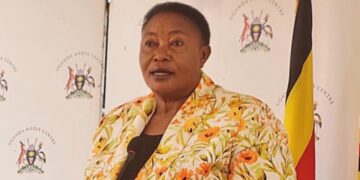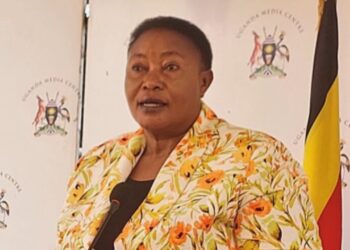Op-Ed
According to the International Energy Agency (IEA) Executive Director Fatih Birol, lack of clean cooking access remains one of the great injustices in the world and a universally recognized challenge that all nations, including Uganda need to tackle. He noted that nowhere it is more visible than in Africa where one billion still rely on open fires or basic stoves.
The International Energy Agency report today shows that four in five families across the continent still cook with polluting fuels like wood, charcoal or dung, often over open fires or basic stoves. According to African Development Bank, over 83% of people in sub-Saharan Africa, approximately 900 million depend on biomass use. This reliance leads to over 800,000 premature deaths annually due to indoor air pollution, particularly affecting women and children and trap millions more in poverty with significant impacts on health, gender equality and economic opportunity.
The July 2025 IEA report shows that achieving universal access in Africa requires $37 billion in cumulative investment to 2040, equivalent to roughly $2 billion per year or less than 0.1% of what the world invests annually in energy. This includes upfront spending in household equipment such as stoves and fuel cylinders as well as enabling infrastructures like fuel distribution networks, storage terminals and electricity grid upgrades.
Currently, the Ugandan government is also actively investing in and promoting the use of liquefied Petroleum Gas (LPG) as a cleaner cooking fuel. This includes distributing free LPG starter kits and working with partners to increase access and affordability. The goal is to reduce reliance on biomass fuels like charcoal and firewood which contribute to indoor air pollution.
Additionally, the country’s Energy Transition Plan (ETP) also focuses on establishing an energy system needed to support Uganda’s rapid economic development growth through different government’s electricity initiatives such as Electricity Access Scale up Project (EASP) and others, to ensure energy access and clean cooking in line with SDG7. This ambitious ETP agenda holds the promise that its future energy system will look very different from today, with universal access to electricity and to clean cooking achieved by 2030.
However, according UNDP 2025 data, today, only 15% of the Ugandan population has access to clean cooking technologies and over 90% of the population still cook with solid biomass such as charcoal, wood and other fuels. Uganda’s Energy Transition Plan estimates that an investment of $100 million is needed to achieve universal clean cooking access by 2030. However, such funding is critical to reducing indoor air pollution. The government needs to invest more in clean cooking technologies instead of investing in fossil fuel projects like oil and gas which destructs the nature by increasing carbon emissions leading to environmental degradation
Clean cooking is a fundamental need and a foundation of health, equality and economic empowerment especially for women and girls across the continent. The transition to clean cooking technologies such as electric stoves, improved biomass cook stoves, among others can significantly conserve the environment, improve health issues and reduce premature death by limiting exposure to harmful indoor smoke which disproportionately impacts mostly women and children. Countries need strong political commitment, more investments and regional cooperation to make a universal access to clean cooking a reality for every household and this will help us build a healthier and a more equal future for people in Uganda and across Africa.
By Olive Atuhaire,
The writer is a Ugandan Climate Activist.
Email: atuhaireolivia72.ao@gmail.com






































